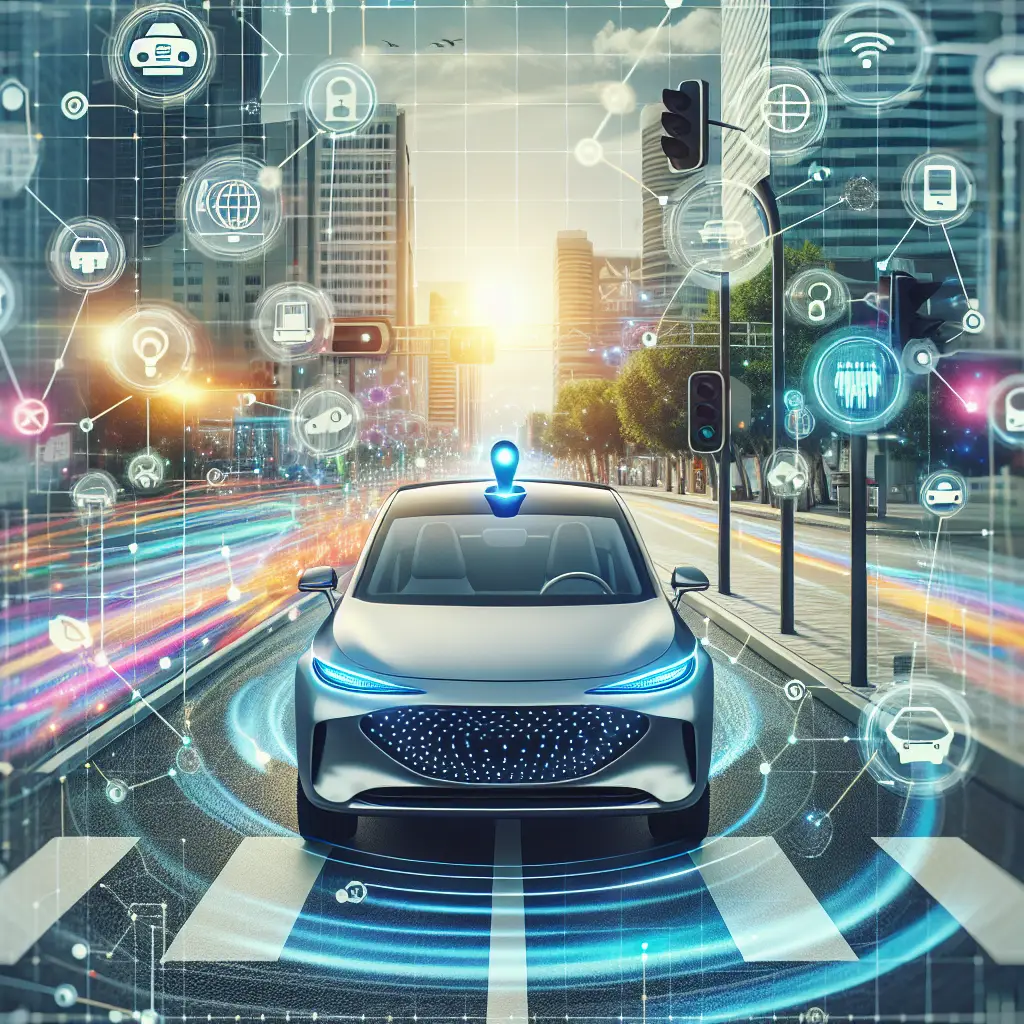Artificial Intelligence (AI) is a transformative technological force, revolutionizing various industries around the globe. The automotive sector is one of the sectors experiencing significant influence from this technology. AI’s impact ranges from improvements in vehicle manufacturing to the creation of self-driving cars, revolutionizing the future of transport.
Driven by the AI surge, the global automotive industry has witnessed numerous technological advancements, spearheading a new era of mobility. Enhanced precision, efficiency, and safety in vehicle production and operations are key developments fostered by AI. It is truly transforming the automobile sector, designing an innovative landscape with profound potentials.
The use of AI in the automotive industry presents the growth of an intelligent, automated digitized ecosystem, encompassing elements like connected cars, smart factories, and advanced in-vehicle technologies. These implementations not only reimagine conventional processes but also induce high-level efficiency and operational effectiveness.
AI is undeniably the cornerstone of developing self-driving cars, a concept rapidly becoming a reality. Autonomous vehicle technology leverages AI to interpret environmental data, make informed decisions, and execute complex driving tasks without human input. This reality negates the human error element in driving, significantly reducing the risk of accidents.
Furthermore, AI enables predictive capabilities in vehicle maintenance, improving the lifetime value of vehicles. AI systems can detect and predict vehicle faults, reducing unplanned downtime and improving vehicle longevity. Predictive maintenance systems can help in personalizing maintenance schedules, making preventive fixes before failures occur, which can save time, money, and potentially lives.
The industry is also harnessing AI’s capabilities in production and supply chain management. AI can optimize throughput in automotive production plants by predicting production bottlenecks, dynamically adjusting production plans and managing quality control. It can also analyze market trends to improve demand forecasting, inventory management, and enhance customer experience.
AI-powered digital assistants and in-vehicle infotainment systems have significantly enhanced the driving experience. These systems can recognize and respond to voice commands, enabling drivers to control various functions without taking their hands off the steering wheel.
Turning to safety, AI has become a key player. Advanced Driver Assistance Systems (ADAS), powered by AI, have become a standard feature in modern vehicles. These systems can respond to hazards faster than humans, preventing accidents and saving lives.
The AI integration has also birthed new business models in the automotive industry. Car sharing and ride-hailing services, powered by AI algorithms, can analyze vast amounts of data in real time to optimize routes, match drivers to passengers, and calculate prices.
AI’s influence on automotive insurance is noteworthy. By leveraging AI, insurers can offer usage-based insurance (UBI), calculating premiums based on actual driving behavior rather than statistical averages.
The shift towards AI in the automotive industry does come with some challenges. Concerns around data privacy, cybersecurity, and legal and regulatory hurdles need to be addressed for wider AI adoption. There is also a need for significant investment in AI infrastructure, talent, and research.
Despite these challenges, the benefits of AI in the automotive industry are hard to ignore. Automakers around the world are investing heavily in AI, recognizing its potential in shaping the future of mobility.
As AI continues to evolve, we can expect even more innovation and advancement in the automotive industry. From faster production lines, safer roads, and smarter cars, the revolution of the automotive industry is just getting started. From efficient manufacturing, advanced safety systems, self-driving vehicles, AI is undoubtedly transforming the automotive landscape.
AI’s impact extends beyond the tangible aspects of the vehicle itself. It is reshaping the entire automotive value chain, fostering a new ecosystem of mobility. The infusion of AI into the automotive sector implies a revolutionized, digitized industry, providing opportunities for growth and innovation.
The interplay of AI and the automotive industry is a potent blend, creating a wave of beneficial transformations. With continual developments, we can expect an increasingly automated, secure, and efficient transportation future powered by AI. This high degree of technological fusion implies a metamorphosis in the automotive sector, redefining the way we perceive and interacts with vehicles.
In conclusion, we can affirm that AI forms the linchpin of the automotive future, promising a safe, efficient, and convenient commute. As AI systems evolve and integrate deeper into automotive processes, it will invariably reshape the contours of the industry, steering it towards a progressive and innovation-guided future. The full potential of AI in the automotive industry is yet to be fully realized, but the transformations it has brought about already indicate a future equipped with intelligent, autonomous, and highly efficient vehicles. Be it manufacturing, safety, driver experience, or business models, AI is indeed carving a new era of mobility.
Share this content:

